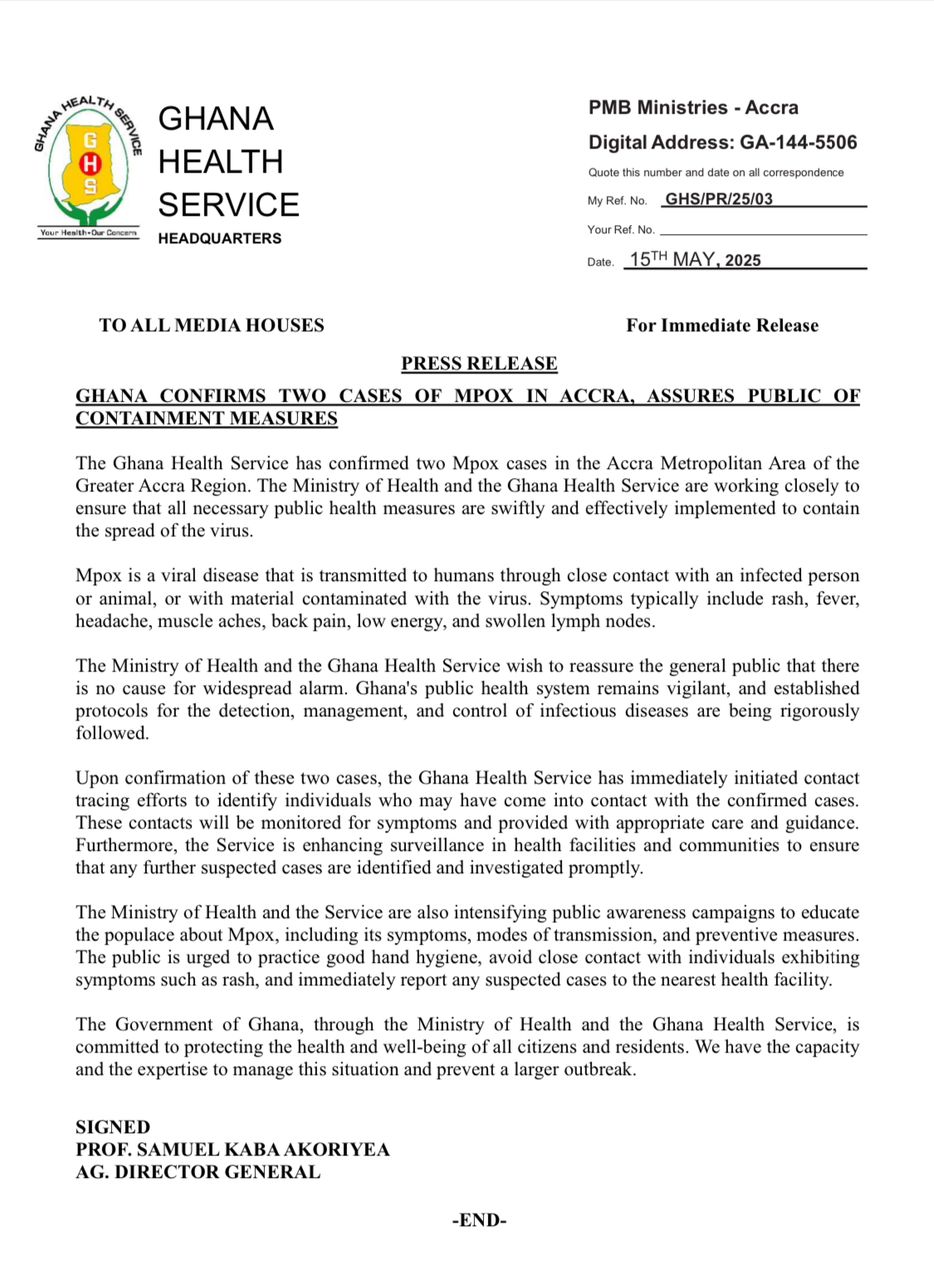By Francis Kobena Tandoh
Health authorities in Ghana have confirmed two cases of Mpox in the national capital of Accra, the Ghana Health Service (GHS) said in a statement late Thursday.
According to the statement, the two cases were confirmed in the Accra metropolitan area in the Greater Accra region (province). Acting director general of the GHS, Prof. Samuel Kaba Akoriyea, observed that all necessary public health measures have been put in place to contain the spread of the disease.
“The Ghana Health Service has confirmed two Mpox cases in the Accra Metropolitan Area of the Greater Accra region. The Ministry of Health and the Ghana Health Service are working closely to ensure all necessary public health measures are swiftly and effectively implemented to contain the spread of the virus,” said the statement.
The GHS stated it initiated contact tracing immediately after the disease was confirmed to identify individuals who may have come into contact with the affected persons.
“Upon confirmation of these two cases, the Ghana Health Service has immediately initiated contact tracing efforts to identify individuals who may have come into contact with the confirmed cases. These contacts will be monitored for symptoms and provided with appropriate care and guidance,” it added.
The Ghanaian authorities further stated that the service is enhancing its surveillance in all health facilities and communities to ensure that further suspected cases are identified and dealt with promptly.
The health ministry and the GHS reassured the public that there is no cause for alarm and that the country’s health system remains vigilant, and established protocols for the detection, management, and control of infectious diseases are being vigorously followed.
According to the World Health Organization (WHO), Mpox, previously known as monkeypox, is a viral illness caused by the monkeypox virus, a species of the genus Orthopoxvirus. There are two distinct clades of the virus: clade I (with subclades Ia and Ib) and clade II (with subclades IIa and IIb).
In 2022–2023, a global outbreak of mpox was caused by the clade IIb strain. Mpox continues to be a threat today, and an upsurge of cases in the Democratic Republic of the Congo and other countries caused by clades Ia and Ib has raised concern.
Symptoms typically include rash, fever, headache, muscle aches, back pain, low energy, and swollen lymph nodes. Enditem
Source: Self/GHS
Find the statement released by the Ghana Health Service (GHS) below:





